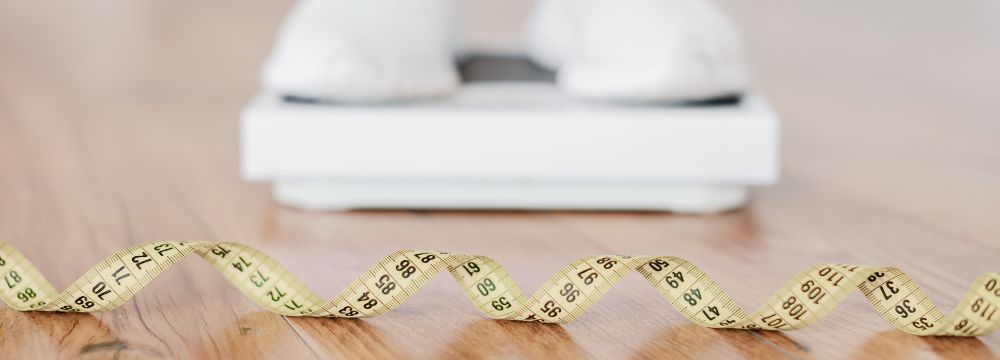
The gastric sleeve or sleeve gastrectomy is the most popular bariatric surgery procedure in the United States and has been for quite some time, and there’s a good reason for this. This straightforward procedure removes approximately 75% to 80% of the existing stomach pouch. More accurately, however, the surgeon aims to leave about 20 to 25% of the existing stomach pouch behind. The stomach is cut along the greater curvature, which essentially removes the outer portion of the stomach and the primary production center of the hormone known as ghrelin. This is the hormone responsible for hunger, and as such, not only do patients experience weight loss from the restriction of the smaller gastric pouch, but also because of the hormonal change. The result is that many patients experience dramatic excess bodyweight loss of 70+ percent. However, our most dedicated and focused patients can lose even more!
As with any weight loss modality, from diet and exercise to GLP-1 medication like Wegovy and Zepbound, and even bariatric surgery, there is the potential of patients not experiencing the weight loss that they expect. Generally, we measure success as losing and maintaining approximately 50% excess body weight loss. Of course, the expectations of our patients may guide what we consider to be an individual’s barometer for success. However, while we have plenty of literature on how to succeed with the gastric sleeve, patients must understand how the sleeve fails and how to avoid it.
Choose the Right Surgeon
Unfortunately, there is a trend of talking about the sleeve as not only straightforward, which it is, but also simple, which it most certainly is not. What do we mean by this? Well, a sleeve surgeon must have a great deal of experience to ensure that their technique and technology allows for the best outcomes. For example, you may have seen a video on how a sleeve is performed. In this video, you’ll note that the staple lines are placed using small cartridges – taking small “bites” out of the stomach. As a result, five or even six staple cartridges may be used during surgery. Your surgeon must have the experience and meticulous focus to ensure a smooth division along the stomach. This significantly reduces the risk of many concerns, not least of which is new or worsened gastroesophageal reflux disease or GERD after the sleeve.
Ask Your Surgeon About a Hiatal Hernia
One of the leading causes of revision of a gastric sleeve is new or worsened reflux. One of the biggest culprits is a hiatal hernia – the stretching or opening of the hiatus that allows the esophagus to pass from the chest into the abdominal cavity. Most patients with obesity also have a hiatal hernia. Identifying and repairing this hernia can reduce the incidence of GERD postoperatively by up to 50%. That said, not all hiatal hernias are immediately apparent, so be sure to choose a surgeon who will ensure that the hiatal hernia, if it exists, is found and repaired.
Postoperative Support and Access to Your Practice
In the first couple of years after surgery, you will likely find weight loss relatively easy, and you may believe that you do not need help from your practice or the support team (that we strongly encourage you to build before your procedure). However, after about 2 to 3 years, the small intestine may begin producing small amounts of ghrelin, which may bring about the return of hunger pangs and the possibility of eating more and ultimately gaining weight. Having a practice that prioritizes your post-op life helps ensure that by the time you reach this point, you have modified your diet and exercise so that hormonal changes do not pull you off track.
Stretching Your Pouch
Without adequate dietary control, mainly eating huge meals or drinking lots of carbonated beverages, stretching your gastric pouch in the future is possible. The stomach is a very adaptable organ. It gets larger every time food enters the system; it retracts once the contents have been digested and passed on to the small intestine. However, constantly overeating can, in some cases, lead to a permanently stretched pouch, which can further lead to overeating and gaining weight – a vicious cycle. While a renewed dedication to weight loss can help, this often results in conversion surgery.
Not Being Ready for Change
A gastric sleeve may also fail if you take the wrong approach to lifestyle change. Note that we mention “lifestyle change” rather than “diet.” Many patients believe that they will have to diet for the rest of their lives, and this often leads to resentment and frustration, especially many years after surgery, because they eventually lose their will to continue what they consider to be a restrictive and unenjoyable diet. Instead, we encourage our patients to look at their surgery as a catalyst for lifestyle change and, in doing so, realize that their new diet will be what they should’ve been eating all along. Within that, there are very few off-limits foods, so no patient should feel like they are suffering in their diet. Finding bariatric chefs on social media who make your post-op diet and eating plan fun can be helpful.
Not Asking for Help
We see it far too often. A patient may be struggling with their postoperative lifestyle change but doesn’t want to bother us with their questions. Unfortunately, this tends to lead to many small compromises that lead to failure. As bariatric surgeons, we are committed to our patients’ weight loss journeys. As such, we look forward to answering any questions our patients may have about their surgery. On our website and through our phenomenal nurses and assistants, we take great pride in being available to our patients whenever needed. Patients who use us as a resource for uncertainty and challenges always do better.
The Bottom Line
Getting used to life after bariatric surgery takes some time, but it’s not complex. Ultimately, we give you a tool to create the right-size portions and get you up and about to exercise and lose weight while building muscle and improving your mental health. The gastric sleeve can fail for any number of reasons. However, gastric sleeve and bariatric surgery can be incredibly successful with proper planning before surgery, the right practice, and the right attitude in your post-op life.
We look forward to answering any questions you may have about bariatric surgery. If you’re reading this and struggling with your post-op life, we encourage you to contact us to learn more and get your questions answered.









